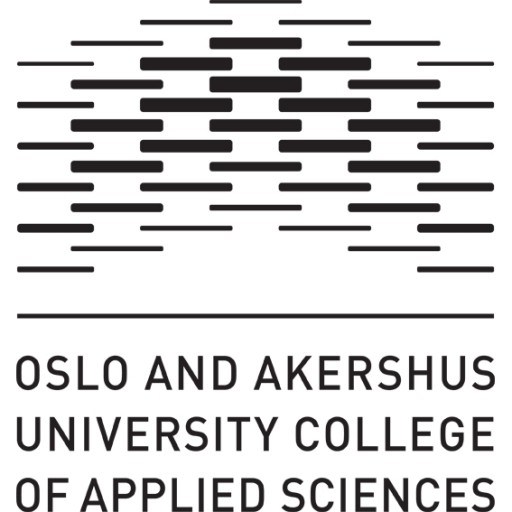Photos of university / #studentradetmf
The Bachelor's degree in Religion, Society and Global Issues at MF Norwegian School of Theology offers a comprehensive and interdisciplinary exploration of religion's role in shaping contemporary societies and addressing global challenges. This program provides students with a solid foundation in religious studies, combined with critical analysis of social, cultural, and political issues that impact communities worldwide. Through engaging coursework, students will examine various religious traditions, their historical development, and their influence on societal norms and values. In addition, the program emphasizes understanding global issues such as climate change, migration, conflict, and human rights, exploring how religion intersects with these themes and contributes to solutions or challenges.
Students will develop essential skills in research, critical thinking, and intercultural communication, preparing them for careers in academia, NGOs, international organizations, and community development. The program encourages active participation in discussions about ethics, social justice, and the role of religion in promoting sustainable development. Courses are designed to foster a nuanced understanding of diversity, pluralism, and the importance of dialogue in addressing global conflicts. The interdisciplinary nature of the program allows students to engage with historical, philosophical, and sociological perspectives, enabling a holistic view of how religion influences societal structures and global issues.
Throughout the program, students will have opportunities for fieldwork, internships, and collaborative projects, providing practical experience and networking opportunities. Graduates will be equipped to analyze complex issues critically and contribute thoughtfully to public debates, policy-making, and community initiatives. The program's flexible structure allows students to tailor their studies towards specific interests within religion, society, or global issues. With a strong foundation in both theory and practical application, graduates will be well-prepared to engage with the pressing challenges of our time, fostering a more understanding and equitable world.
The Master’s degree program in Religion, Society and Global Issues at MF Norwegian School of Theology offers an in-depth exploration of the complex relationships between religious beliefs, societal structures, and global challenges. This interdisciplinary program is designed to equip students with critical analytical skills and a nuanced understanding of how religion influences social change, international relations, cultural identities, and ethical debates worldwide. Throughout the program, students examine a broad spectrum of topics, including religious movements, secularization, human rights, interfaith dialogue, and the role of religion in conflict and peacebuilding. The coursework emphasizes comparative analysis, encouraging students to engage with diverse religious traditions and societal contexts across different regions of the world. Students will also explore contemporary global issues such as migration, environmental crises, and political extremism through a religious and social lens. The program combines theoretical frameworks with practical approaches, enabling graduates to contribute thoughtfully to policy development, community engagement, academia, or international organizations. In addition to rigorous coursework, students participate in research seminars, workshops, and field studies that foster critical thinking and active participation in scholarly debates. By integrating academic inquiry with real-world application, the program prepares graduates for careers involving policy analysis, diplomatic service, non-governmental organizations, and religious leadership. Emphasizing ethical considerations and intercultural understanding, this degree aims to promote social responsibility and global citizenship among its students. Graduates will emerge with a comprehensive understanding of the dynamic ways religion shapes contemporary society and policy, empowering them to address complex global challenges with insight and empathy. Whether you are interested in academic research, social change initiatives, or international diplomacy, this program provides the knowledge and skills necessary to make a meaningful impact in a diverse and interconnected world.
The "Religion, Society and Global Issues" master's degree programme at MF Norwegian School of Theology offers a comprehensive overview of various financial aspects related to higher education funding and student support systems in Norway. Generally, Norwegian universities and higher education institutions operate within a framework that provides substantial financial assistance to both domestic and international students. Tuition fees for Norwegian and EU/EEA students are typically waived, which significantly reduces the financial burden on students attending the program. However, international students outside the EU/EEA are often required to pay tuition fees, the amount of which can vary depending on the specific programme and university policies.
Financial support for students in Norway is primarily accessible through government-funded student loan and grant schemes managed by the Norwegian State Educational Loan Fund (Lånekassen). Norwegian citizens and residents, including international students with permanent residence rights, can apply for loans and grants from Lånekassen to cover living expenses, books, and other educational costs. These loans are generally low-interest and have favorable repayment terms, making higher education more accessible irrespective of students' economic backgrounds.
Students are also encouraged to seek additional financial aid opportunities, such as scholarships or employer-sponsored funding, although such options are less common for international students at MF Norwegian School of Theology. The university itself may offer limited scholarships, grants, or financial aid programs specific to certain student groups or academic achievement; however, detailed information on such scholarships for this particular programme should be checked directly through the university's official channels.
Living expenses in Norway are considered relatively high, including rent, food, transportation, and health insurance. Students are advised to plan adequately for these costs, especially those coming from abroad. The university recommends budgeting for approximately 10,000 to 15,000 Norwegian kroner per month to cover basic living expenses, depending on individual circumstances. This financial planning is especially critical for international students who may not have access to the same financial aid options as Norwegian or EU/EEA students.
Additional financial considerations include the cost of health insurance, which is generally covered under the Norwegian national health system for students residing in the country, and potential costs related to visas and residence permits for international students. Overall, the financing of studies in the "Religion, Society and Global Issues" programme is designed to be manageable for students who plan carefully and utilize the available funding options provided by Norwegian government schemes and the university. Prospective students are encouraged to consult the MF Norwegian School of Theology's official website and the Norwegian Student Welfare Organization for the most current and detailed financial guidance related to their studies.
The Bachelor’s programme in Religion, Society and Global Issues at the MF Norwegian School of Theology offers students an in-depth understanding of the role of religion in contemporary society and its influence on global challenges. The programme is designed to equip students with critical thinking skills, a broad interdisciplinary perspective, and practical tools to analyze religious phenomena and their impact on societal development. Courses typically cover a wide range of topics, including religious traditions, secularization, interfaith dialogue, spirituality, human rights, global ethics, migration, and the role of religion in politics and culture. The programme emphasizes both historical context and current issues, fostering an understanding of how religion interacts with social structures, economic systems, and international relations. Students are encouraged to explore the ways religion shapes identities, community dynamics, and policy-making processes. The curriculum is often structured to include lectures, seminars, project work, and field studies, providing a comprehensive educational experience. Graduates of this programme are prepared for careers in areas such as intercultural dialogue, social work, NGO and international organizations, education, journalism, and further academic research. The programme typically includes the possibility of specializing in certain fields or themes within religion and society, allowing students to tailor their studies to personal interests and career goals. Given the emphasis on societal issues and global perspectives, the programme prepares students to engage thoughtfully and responsibly with the challenges faced by diverse communities worldwide. It aims to foster critical awareness, cultural sensitivity, and an engaged civic mindset, making graduates valuable contributors to societal development and international cooperation.
(1184 characters)









